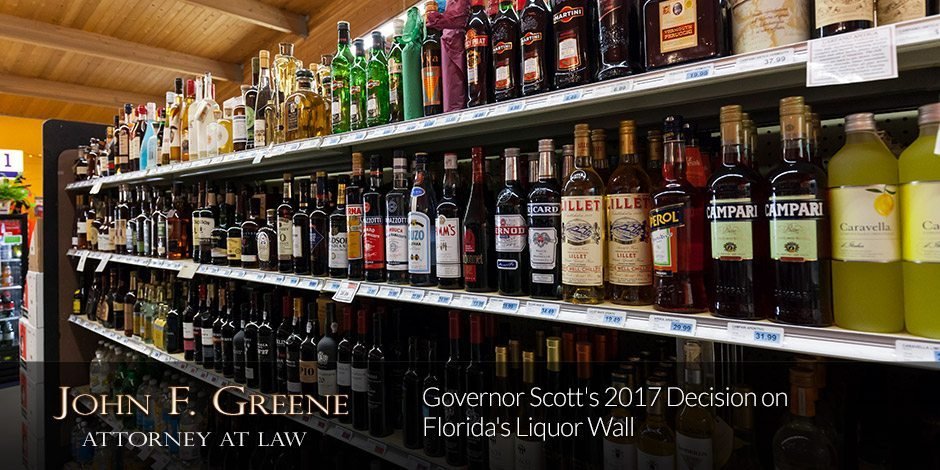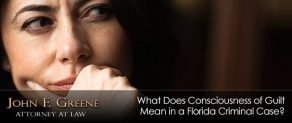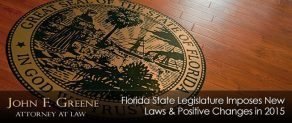
Much ado has been made about Governor Scott’s looming decision regarding Florida’s “liquor wall” law. Early in 2017, the Florida legislature approved a bill — SB 106 — that would repeal Florida’s decades-old liquor wall law, which required hard liquor to be sold in separate facilities from groceries and other goods.
Opponents of the bill pushed Gov. Scott to veto the bill, and it seems their efforts have been rewarded. Gov. Scott did indeed choose to veto the bill that would have allowed grocery stores, gas stations and retailers to sell liquor alongside their beer and wine products. Scott cited his decision as supporting small business, which echoed the sentiments of those who wanted to see the bill vetoed.
Independent liquor stores, in particular, were in favor of the bill’s veto. Critics, however, claim that the move is anti-consumer, arguing that retailers and establishments should be allowed to choose the products and convenience they offer customers.
No matter which side of the aisle one favors economically, another question following the veto is whether Floridians will be safer as a result of this veto. Individuals in favor of the veto argued that the bill could have led to an increase in impulsive liquor purchases while also making it easier for minors to purchase liquor.
Given these claims, it is helpful to look at the evidence in support of such claims.
Would Allowing Liquor in Grocery Stores Make Florida Less Safe or Healthy?
A Centers for Disease Control and Prevention alcohol task force found that there is a correlation that shows the more liquor stores there are, the more drinking problems that will result. Naturally, then, this could serve as evidence that the veto will prevent additional health and safety risks.
However, deeper analysis may show that allowing grocery stores to sell liquor will paradoxically reduce the number of liquor stores. If it is true that small business liquor stores could not compete with large grocery stores and retailers, then it stands to reason allowing these establishments to sell liquor could drive the small liquor stores out of business.
Some research bears this out, showing that states that do not allow supermarket liquor sales have higher per capita rates of heavy drinking than states that allow supermarket liquor sales. If accurate, then it is unlikely that this veto will have a major impact on Florida health and public safety risks like drinking and driving.
Still, it is against the law to drive under the influence of alcohol or to purchase or drink alcohol as a minor. If you have been accused of any alcohol-related offenses, Destin defense attorney John F. Greene will build a strong legal defense on your behalf. From his Destin office, John represents individuals accused of a crime in Destin as well as persons in Northwest Florida and the Emerald Coast, including Santa Rosa, Walton, Bay and Okaloosa Counties. John also represents individuals accused of alcohol-related offenses in the communities of Destin, Niceville, Fort Walton Beach, Panama City and Santa Rosa Beach.
If you need a Florida criminal defense lawyer who will fight to get your alcohol-related charges reduced or dismissed, contact Destin defense attorney John F. Greene or call 850-424-6833.









